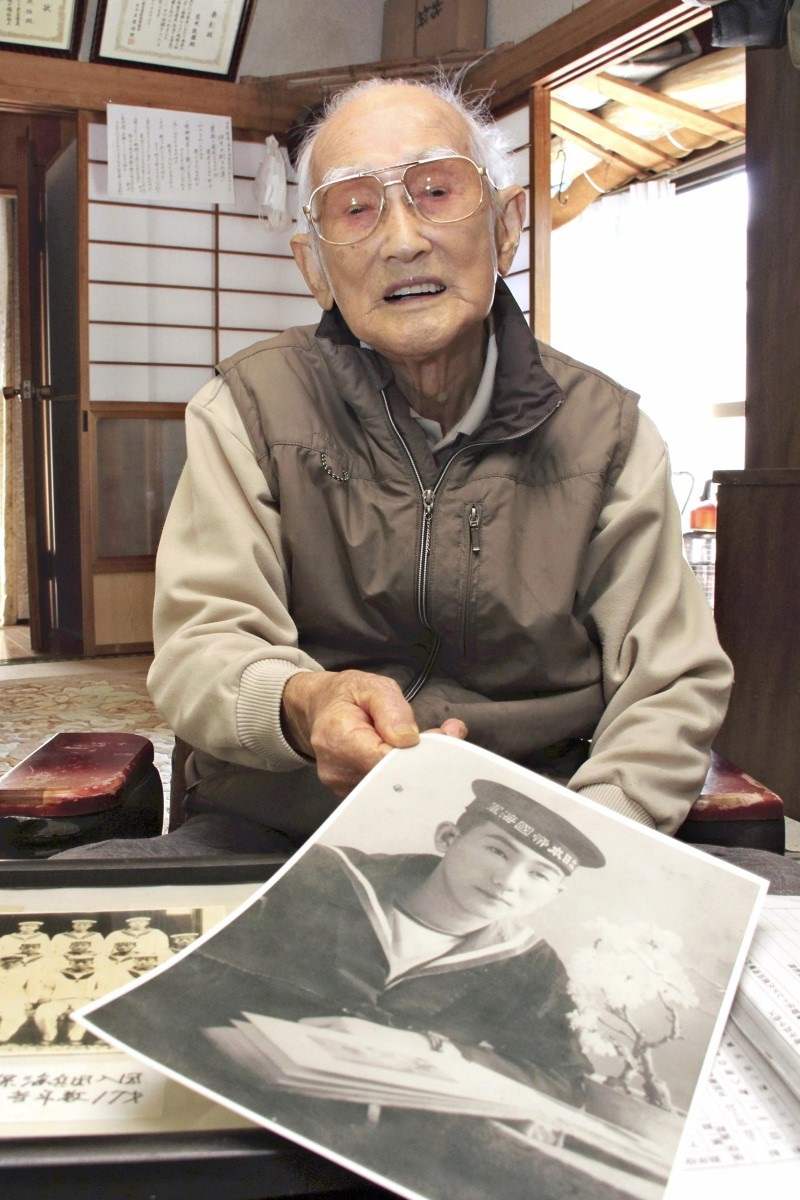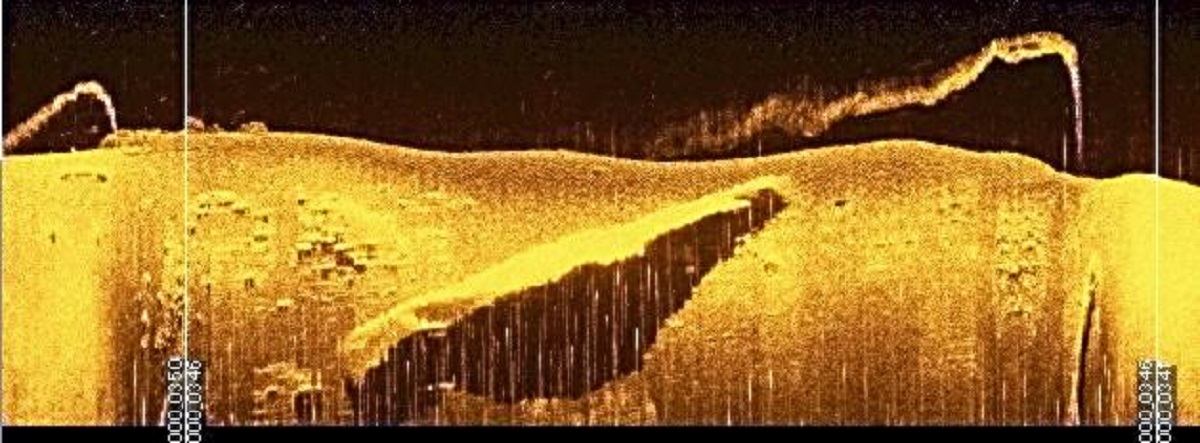
Masao Araki, 101, in Nishinoomote, Kagoshima Prefecture, on Feb. 16, holds a photo of him as a sailor during World War II. “I still remember the terror I felt when the machine gun bullets came toward me,” he said.
17:46 JST, March 30, 2023
So many warships sank in the waters around Guadalcanal Island that the area was nicknamed Ironbottom Sound.
Involved in the naval battles in those waters was 101-year-old Masao Araki.
“I am very grateful that there are people who are still conducting searches,” he said in Nishinoomote, Kagoshima Prefecture, where he lives.
Deep into the night of Aug. 8, 1942, Araki was on the bridge of the destroyer Yunagi, which was bringing up the rear of a fleet of eight Imperial Japanese Navy ships, including a heavy cruiser. The vessels slowly drew closer to Guadalcanal. Stretched out before his eyes was the luminescence of noctilucas in the sea under a starry sky.
Only 20 years old at the time, Araki waited with bated breath as what would be called the Battle of Savo Island was about to begin.
Suddenly, the silence was broken as the fleet launched its night attack on Allied warships. Under the illumination of the searchlights and flares of the Japanese military, the silhouettes of about a dozen Allied ships stood out in the darkness.
Coming toward the destroyer he was on were tracer bullets from machine guns on Allied ships. The crew of the Yunagi immediately got ready to fire a torpedo.
Araki called out readings on a compass and reported the direction of the targeted enemy vessel to his superior. At that moment, he thought he heard his mother Ichi’s voice close to his ear, saying, “Masao, don’t ever die.” He instinctively stopped moving, only to be roused to action by the angry voice of his superior.
Immediately afterward, a torpedo was fired, creating a 10-meter column of water on the side of the enemy ship. All he could think about was, “I want to shoot quick and pull out of here fast.”
The Yunagi reversed course and increased speed to get away from the island because there was the fear that the fleet could be attacked by U.S. military aircraft at dawn. He was petrified with fear until the Yunagi sailed out of the enemy’s range.
In this naval battle, the Japanese forces achieved the sinking of four U.S. and Australian naval vessels. But Araki didn’t know until the war ended that Japanese naval vessels were subsequently sunk one after another near Guadalcanal, while soldiers who were on the island starved to death.
Araki can never forget what a soldier said in a voice filled with regret to wounded comrades left behind on the island: “We will come fetch you without fail.”
Today, Araki no longer has any fellow soldiers to share the memories of the war with him.
“While the memory of the war fades, discovering those sunken ships and the soldiers’ belongings at the bottom of the sea will provide an opportunity for people to reconsider the tragedy of a war,” Araki said.
Related story

Tokyo NPO Resumes Hunt for Warships Sunk in Battle of Guadalcanal
https://japannews.yomiuri.co.jp/society/general-news/20230330-100496/Top Articles in Society
-

Producer Behind Pop Group XG Arrested for Cocaine Possession
-

Man Infected with Measles Reportedly Dined at Restaurant in Tokyo Station
-

Man Infected with Measles May Have Come in Contact with Many People in Tokyo, Went to Store, Restaurant Around When Symptoms Emerged
-

Woman with Measles Visited Hospital in Tokyo Multiple Times Before Being Diagnosed with Disease
-

Australian Woman Dies After Mishap on Ski Lift in Nagano Prefecture
JN ACCESS RANKING
-

Producer Behind Pop Group XG Arrested for Cocaine Possession
-

Japan PM Takaichi’s Cabinet Resigns en Masse
-

Man Infected with Measles Reportedly Dined at Restaurant in Tokyo Station
-

Israeli Ambassador to Japan Speaks about Japan’s Role in the Reconstruction of Gaza
-

Videos Plagiarized, Reposted with False Subtitles Claiming ‘Ryukyu Belongs to China’; Anti-China False Information Also Posted in Japan






















